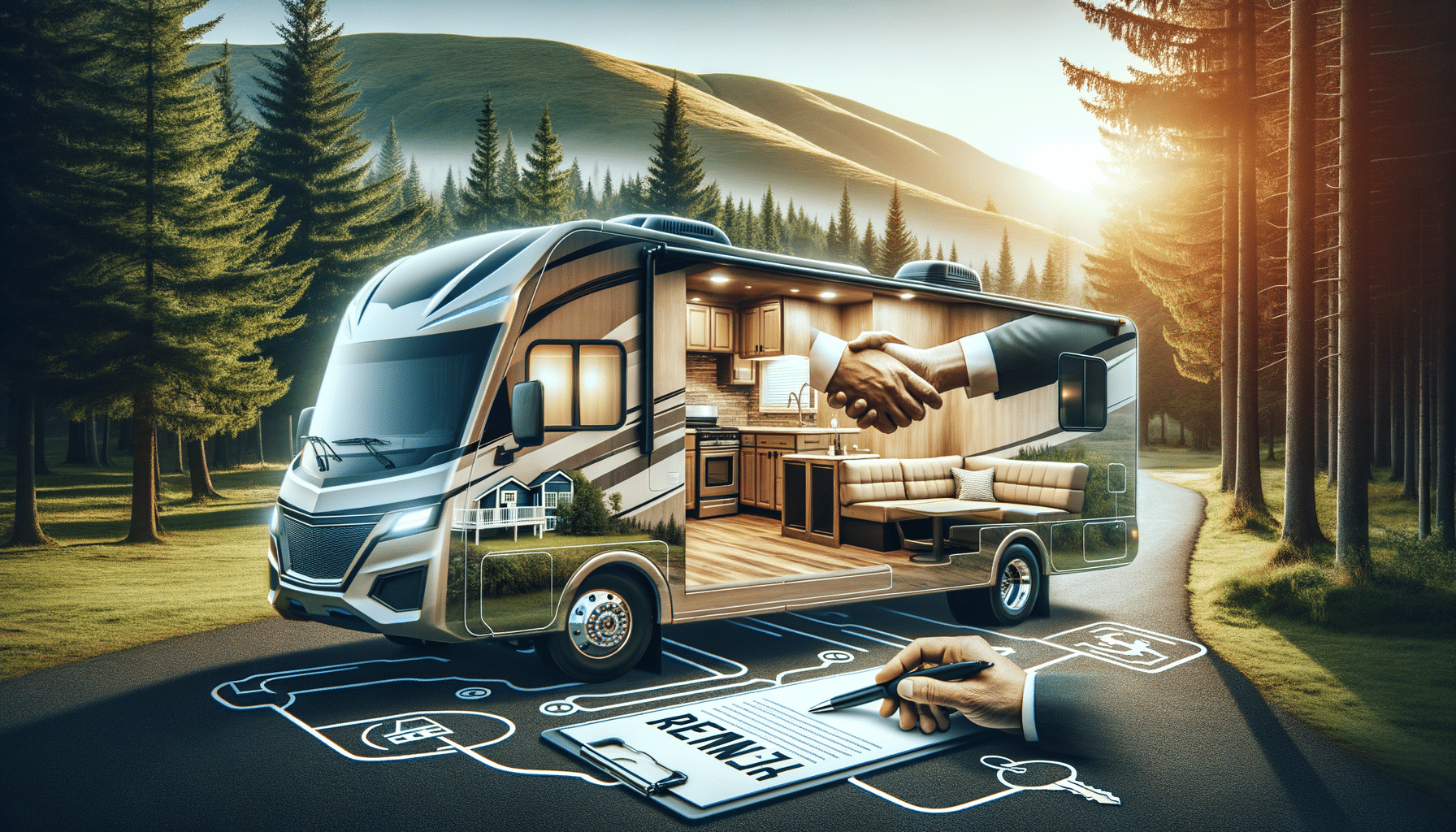Recreational Vehicles on Lease-to-Own Basis: An In-Depth Guide
Embarking on the journey of understanding the realm of lease-to-own recreational vehicles can be a fascinating endeavor for travel aficionados.

Introduction to Lease-to-Own Recreational Vehicles
Lease-to-own arrangements for recreational vehicles (RVs) have emerged as a compelling option for those who dream of hitting the open road without the immediate financial commitment of a full purchase. This model allows potential owners to lease an RV with the option to buy it at the end of the lease term. This approach provides a unique blend of flexibility and ownership potential, making it an attractive choice for many. Unlike traditional financing, lease-to-own agreements often require lower upfront costs and offer a trial period to ensure the RV meets the user’s needs.
Understanding the intricacies of these agreements is crucial for making informed decisions. As the RV market continues to grow, more people are exploring this option, seeking to balance the excitement of travel with financial prudence. This article delves into the details of lease-to-own RVs, exploring how they work, their benefits and drawbacks, and what potential lessees should consider before signing on the dotted line.
How Lease-to-Own RV Agreements Work
Lease-to-own RV agreements function similarly to those in the real estate market, offering a pathway to ownership through leasing. Typically, the lessee pays a monthly fee to use the RV, with a portion of these payments contributing towards the eventual purchase price. The terms of these agreements can vary significantly, often influenced by factors such as the RV’s value, the length of the lease, and the lessee’s creditworthiness.
Key elements of these agreements include:
- Down Payment: Often lower than traditional financing, making it accessible for more people.
- Lease Term: Ranges from a few months to several years, allowing flexibility.
- Purchase Option: At the end of the lease, the lessee can choose to buy the RV, typically at a pre-agreed price.
These agreements provide an opportunity to test the RV lifestyle before committing fully. It’s a chance to experience the freedom of travel while assessing whether the RV meets long-term needs. However, it’s essential to read the fine print, as terms can vary widely between different dealers and lenders.
Advantages of Lease-to-Own RVs
The lease-to-own model offers several advantages that make it appealing to a broad audience. First and foremost, it provides a lower barrier to entry, allowing individuals to enjoy the RV lifestyle without the hefty upfront costs associated with purchasing an RV outright. This is particularly beneficial for those who are new to RVing and unsure if it’s the right fit for them.
Additionally, lease-to-own agreements often come with flexible terms. Lessees can choose the duration of their lease based on their financial situation and future plans. This flexibility is invaluable for those who might have fluctuating incomes or are planning significant life changes, such as retirement or relocation.
Another advantage is the ability to build equity over time. As part of the lease payments typically goes towards the purchase price, lessees are gradually investing in ownership. This can be a more financially sound strategy compared to renting, where no equity is built. Furthermore, lessees have the opportunity to test the RV over an extended period, ensuring it meets their needs and preferences before committing to ownership.
Challenges and Considerations
While lease-to-own RVs offer numerous benefits, there are also potential challenges to consider. One of the primary concerns is the potential for higher overall costs. While monthly payments may be lower, the total amount paid over the lease term can exceed the outright purchase price, especially if the lease is extended or if interest rates are high.
Another consideration is the condition of the RV at the end of the lease. Lessees are typically responsible for maintenance and repairs, which can become costly. It’s crucial to thoroughly inspect the RV before signing the lease and to budget for potential maintenance expenses.
Lastly, the terms and conditions of lease-to-own agreements can be complex. It’s important to fully understand the contract details, including any penalties for early termination or failure to purchase at the end of the lease. Consulting with a financial advisor or a legal professional can provide clarity and ensure that the agreement aligns with the lessee’s financial goals.
Conclusion: Is Lease-to-Own Right for You?
Deciding whether a lease-to-own RV agreement is the right choice depends on individual circumstances and preferences. For those who value flexibility and lower initial costs, this model can be an excellent way to explore the RV lifestyle. It offers the chance to experience the joy of travel while gradually working towards ownership.
However, it’s essential to weigh the potential drawbacks, such as higher long-term costs and maintenance responsibilities. Prospective lessees should conduct thorough research, compare different agreements, and consider their long-term plans before committing.
Ultimately, lease-to-own RVs represent a unique opportunity in the world of recreational travel. With careful consideration and planning, they can be a gateway to adventure and exploration, offering a blend of freedom and financial prudence.